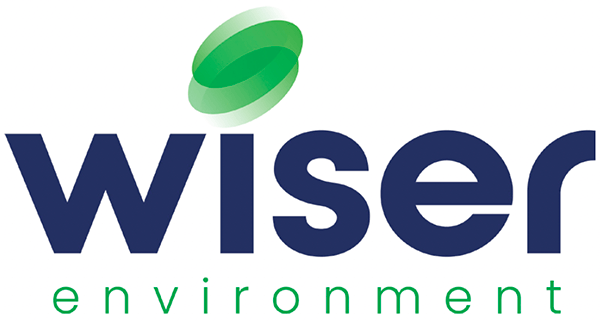Reinforcing again why health and safety training is paramount, another business has been prosecuted and imposed with a hefty fine after its excavator hit an operator. The HSE press release highlights how poor training led to a worker stranded in the path of an industrial vehicle. To raise awareness, Wiser Environment’s health and safety experts explain why systematic training must be a business priority.
Generally, successful businesses need experienced and knowledgeable operators to succeed. A positive safety culture not only enhances productivity and increases profits, but it also supports a safe working environment. Furthermore, the Health and Safety at Work etc Act 1974 mandates that employers provide reasonably practicable training that ensures the health and safety of its employees.
Non-compliance can result in severe consequences. A prime example of this is demonstrated when the Health and Safety Executive (HSE) investigated a waste transfer station in 2017. Here, an industrial vehicle hit one of the site’s workers. Expanding further, the HSE article states that:
“Westminster Magistrates’ Court heard that on 12 September 2017, the worker, who had been observing a tipping activity in the blind spot of the excavator, had his leg crushed by the machine which had reversed to accommodate another vehicle tipping off waste in an adjacent part of the site.”
Speaking after the hearing, the HSE Inspector further underscored how avoidable this tragic accident was:
“This incident was entirely preventable and has caused a permanent and life-changing injury to a young agency worker. The company failed to implement an adequate system of monitoring of agency workers on-site… Any company that uses agency workers are required to extend the same duty of care to them as their own direct employee.”
How better health and safety training can protect businesses
Wiser Environment’s health and safety experts agree with the HSE Inspector’s conclusions. Operators that provide adequate training can mitigate risk the of accidents. Furthermore, workplaces with a positive safety culture will have an all-encompassing training and induction procedure. Every individual – whether it is an employee, worker, contractor or visitor – understands their role and knows how to do it safely.
The HSE example illustrates an incident that the authority deems preventable. Here, the agency worker was unaware of the site’s traffic movement procedures. As a result, they were in the wrong place at the wrong time. Appropriate training could have stopped this from this happening.
Advice on delivering effective training
Each individual has a distinct teaching and learning style. In other words, each trainer and learner will have different demands. Working out how to design and deliver productively is a challenge for businesses; there is not a one-size that fits all.
Nevertheless, there is support out there. The HSE provides guidance on how to deliver health and safety training. This guidance summarises the features that the HSE deem important for effective training. In a step-by-step guide, they are as follows:
1. Determine the required training:
To prepare a worker or contractor for a role, a business needs to take several steps to determine what training is needed. First, the operator should review what skills the individual needs to conduct their role safely and efficiently. This could include reviewing job specifications, risk assessments and incident logs for associated near misses or accidents. Second, the aforementioned information is then compared to the individual’s skills and knowledge. This analysis will identify gaps in the individual’s skill-set and will inform the training program’s content.
2. Prioritise:
Each workplace will have several demands for training and, with limited resources, it is impossible to do everything at the same time. So, HSE recommends that operators should prioritise conducting training that has the greatest impact. For example, first-aid training or where a lack of information could result in serious harm.
3. Decide on the training method:
There are a variety of approaches to health and safety training can be carried out in a variety of ways. Such as method statements, toolbox talks, seminars, on-the-job training and coaching. The method should be whatever suits the business and the trainee best. Operators should also take into consideration any special requirements learners may have. For instance, a learner might have language difficulties or a disability.
4. Deliver training:
As expected, whoever is selected to lead the training needs to have time to prepare and understand the learning material. Translating complex legislation and guidance into accessible and easy to understand learning material is not easy. Often, businesses need some external support to deliver training. This widely accepted and practised. Plus, Wiser Environment has comprehensive health and safety knowledge and is happy to help.
5. Review and reflect:
The last step is to check that the training has worked. During this review process, trainers should be checking to see if their learners have understood the material and testing their knowledge. As this step is also a reflective process, learners should provide back. This feedback will help inform the business of the learner’s perceptive and ascertain the suitability of the training method used. Last but not least, businesses should maintain training records and use this time to schedule in future refresher training.
Health and safety training from Wiser Environment
As detailed above, systematic health and safety training is paramount to a successful business. With a positive safety culture, the risks posed to workers can be limited. Furthermore, it is a legal requirement that employers provide reasonably practicable training that ensures the health and safety of its employees. For more help and advise on health and safety obligations – including appropriate measures to address the needs of vulnerable workers – contact Wiser Environment or call on 01480 462232.



